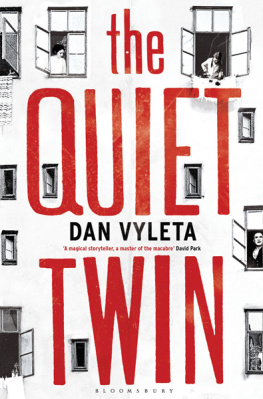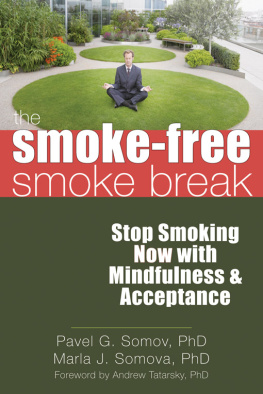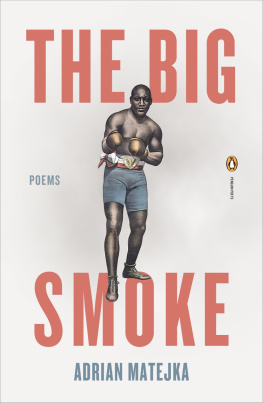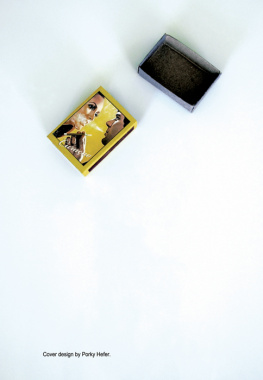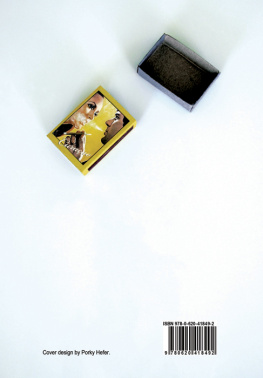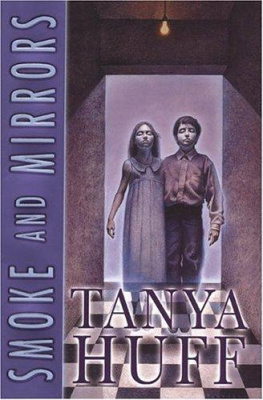For Chantal, my love. In lieu of flowers.
For Mom. You showed me courage.
For Hanna, who lost her Big Man. I mourn with you.
Those who study the physical sciences, and bring them to bear upon the health of Man, tell us that if the noxious particles that rise from vitiated air were palpable to the sight, we should see them lowering in a dense black cloud above such haunts, and rolling slowly on to corrupt the better portion of a town. But if the moral pestilence that rises with them. . could be made discernible too, how terrible the revelation!
CHARLES DICKENS, DOMBEY AND SON (1848)
Thomas, Thomas! Wake up!
The first thing he does upon waking is to search his nightshirt, his bedding for soiling. He does so quickly, mechanically, still more than half asleep: runs a palm over his skin feeling for the telltale grit of Soot.
Only then does he wonder what time it is, and who it is that has woken him.
It is Charlie, of course. His face keeps changing in the light of the candle he is holding. One moment it is steady, carved into plains of white and shadow. Then it buckles: eyes, nose, lips go roaming, rearrange themselves; and the light of the flame leaps into his reddish hair.
Charlie? What time?
Late. Well, early. I heard a boy say it was two. Though the devil knows how hed know.
Charlie leans down to whisper. The candle swoops down with him, chasing shadows across the cot.
Its Julius. He says everyone is to assemble. In the toilets. Now.
There is movement all around the dormitory. Pale figures stretching, rising, whispering in groups. Haste wrestles with reluctance. There are only a handful of candles; moonlight on the snow outside the windows, their panes milky with its ghostly glow. Soon the boys move in procession, out the twin doors. Nobody wants to be first, or last: not Charlie, not Thomas, not even the handful of boys who hold special favour. Best to be lost in the crowd.
The bathroom tiles are cold under their feet. Its a large room flanked by sinks, square white porcelain sinks, their surfaces crisscrossed by a spiders web of fissures, too fine to be traced by your fingers and as though drawn with a fine pencil. Toilet stalls line the far end; beyond them, in a long, narrow annex, hulks a row of bathtubs, square and tiled with pale green tiles. The bathroom floor slopes, very slightly so, towards the middle. Its something you learn when you spill water there. It forms rivulets, heads for the low ground. At the lowest point, the rooms centre, there is a drain, not large, scum-covered, its square metal grille half clogged with hair and lint.
This is where he has placed the chair. Julius. The boys of the lower school call him Caesar, pronouncing the C as a K like the Latin teacher taught them: Key-sar. It means emperor-designate. The one who will rule next. He alone is dressed in all the room: wears pressed trousers, his half boots polished to a shine. A waistcoat, but no jacket, to draw attention to the shirt: the sleeves so lily-white it startles the eye. When he moves his arms, the starched linen makes a sound, something between a rustle and a sort of clapping, depending on how quickly he moves. You can even hear how clean it is. And, by extension, he. No evil has touched him. Julius is the closest the school has to a saint.
He places both hands on the back of the chair and watches the ripple of fear spread through the boys. Thomas feels it, too. Its not a matter of courage, he thinks, but a physical force. Like feeling the wind on your face on a stormy day. You cannot opt out.
We shall have a lottery, says Julius, not loudly, dispensing with a greeting, and one of his cronies, eighteen and bulky in the shoulders, steps forward with pencil stubs, a stack of paper squares, and a large gunny sack. The type you might use to carry potatoes in; to fashion a scarecrows face. The kind you slip over someones head when you lead them to their hanging. But thats just being fanciful, Thomas tells himself, as he accepts a piece of paper and a pencil, and marks down his name. Thomas Argyle. He omits his title. The papers go back in the sack.
Thomas does not know how Julius cheats, but cheat he must. Perhaps he has marked the papers somehow, or perhaps he simply pretends to read off the name he has picked out of the sack and substitutes it for one of his choice. The only person to vouch for the proceedings is that same loyal crony who passed out the papers. Julius has turned up his shirt sleeve to rummage in the sack, as though he were digging for sin at the bottom of a murky pond. As though it were important not to get soiled.
The first name is a surprise. Collingwood. One of his own, a guardian, as they like to call themselves, a fellow prefect, who holds the keys to the dorm and the trust of the teachers. For a moment his choice confuses Thomas. Then he understands. It demonstrates justice, brings home the fact that nobody is above the rules. That there is no one who has nothing to fear.
Collingwood, Julius calls a second time, just that, no first name. Thats what they are to one another here. Your first name is for friends, to be used only in private. And for Julius, who is everybodys friend.
He has to call a third time before Collingwood moves. Its not that hes planning to resist. He simply cannot believe his ears, looks about himself for explanation. But the boys around him have long peeled away; avoid his eyes as though even his gaze carries some disease. So he steps out at last, hugging himself around the chest: a tall, gawky lad, his breath always sour from catarrh.
Seated on the chair, his nightshirt hikes up to about mid-thigh. He tries a smile. Julius returns it easily, not showing any teeth, then turns away and walks the length of the room, boys parting for him like the Red Sea. There, perching on one of the bathtubs like some cast-iron crow, is a heavy trainmans lantern, the hooded kind that shines only to one side. He opens it, lights a match, reaches inside to put its flame to the wick. A turn of a valve, the hiss of match meeting oil, and a focussed beam of rich, yellow light shoots forth, rectangular, like a window to another world.
When Julius takes the handle and walks it across, the swing of the lamp catches bodies, tense little faces, pulling them out of the gloom and isolating them from their peers. Thomas, too, feels the beam of the lamp on him and shrinks before it; sees his shadow dart from out his boots as though looking for a place to hide. It comes to him that Julius had no need to deposit the lamp so far from the chair, that everything his walk across to it, the act of lighting, the stately return is part of a performance planned well in advance. As is his drawing himself up to his full height to hang the lamp from a metal hook that just happens to be hammered into the ceiling there, two steps from the chair. Julius leaves a hand on it, angles it, so that Collingwood sits in a parallelogram of light, its edges drawn as though with a ruler. The light nearly strips him, seems to flood through the cotton of his nightshirt: one can make out the dark of his nipples and the bent struts of his narrow rib cage. Collingwoods face is tense but calm. For a moment Thomas admires him, at whose hand he has so often been punished. It must take tremendous self-possession to bear the glare of that lamp. It is so bright, it seems to separate Collingwoods skin from his freckles: they hover a quarter inch above his cheeks.
Shall we begin then?
It takes Collingwood a moment to collect his voice. He answers with the ritual phrase.
Please, sir. Examine me.
You submit willingly?
I do. May my sins be revealed.


